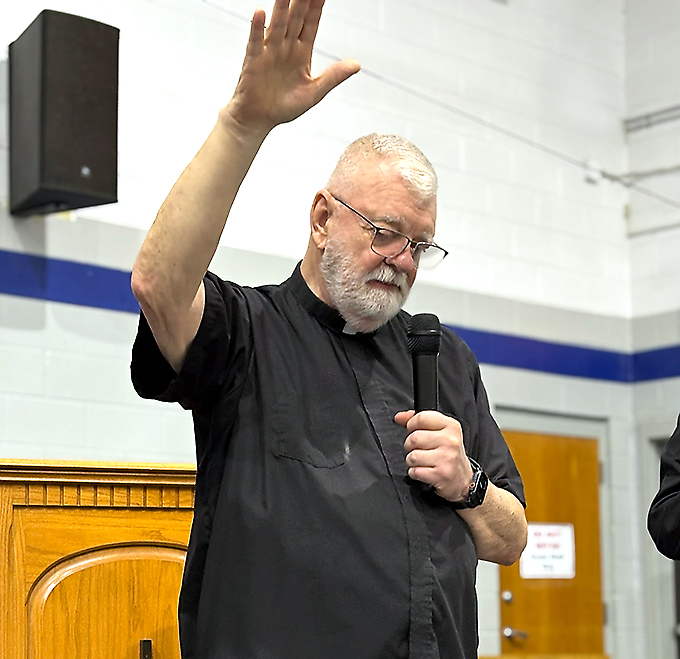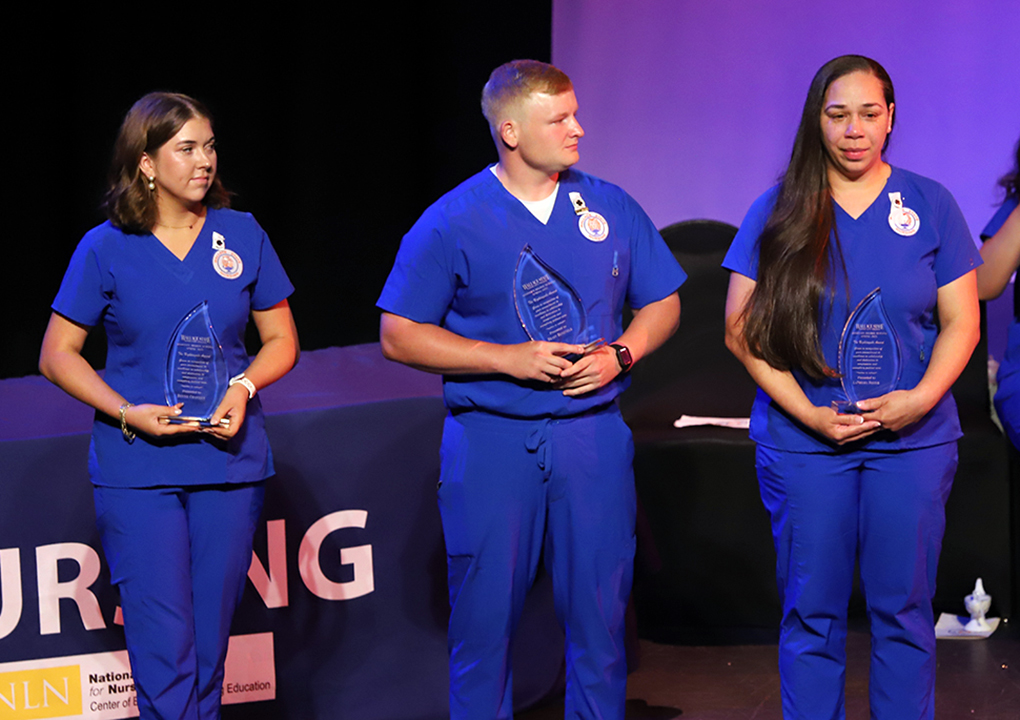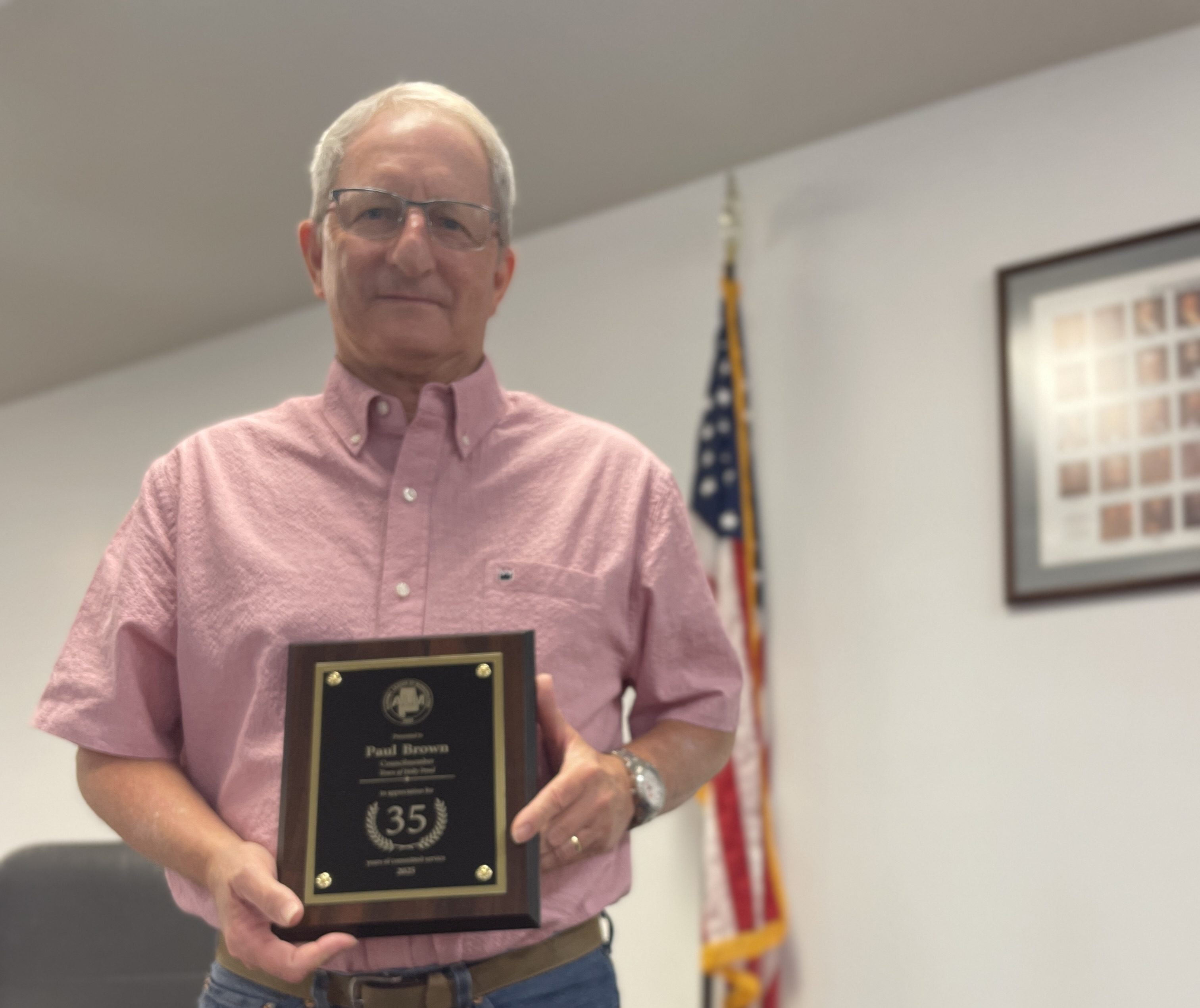Foundry Farm helping community
Published 12:05 pm Friday, May 13, 2011
You turn off the highway onto a little-noticed side road, follow the curves and turn again into a nondescript drive. It takes you down a lane between woods and fields. As you top a gentle rise, spread out before you among undulating hills and green pastures you see… Tara. Expecting the theme song to “Gone With The Wind” to rise to a crescendo at any moment, you make your way up the drive to a tiered fountain, the sound of splashing water welcoming guests to the manor house. Friendly dogs amble up to greet you as you near the entrance. Sunlight glints off the surface of a placid lake situated near the house, horses grazing contentedly near its edge.
Sound like the description of your dream home, a great week-end getaway, or a cozy bed and breakfast? Maybe so, but this is actually a rehabilitation facility for those who are fighting addiction. This is where men come to the end of the road — literally. “Most of our residents have no other options, this is a last resort for them,” explained Director of The Foundry Farm, Rev. Dusty Hammock. “When they come here they have exhausted all their options, most of the time their families and friends have given up on them. They have no where else to go.”
“Consequences drove most people to this place,” said Hammock. “We offer them Christ, without jamming Him down their throats, because we know it’s the only way they will make it — so we keep offering it — over and over.”
Sam Reynolds gave birth to the idea of a place where transient and homeless men could find food, clothing and shelter, while hearing the message of salvation. His vision was to “rescue the perishing.” In 1971, the Bessemer Rescue Mission opened in a rented building with Rev. Gerald Price, a brick mason by trade, as its first chairman of the board.
In 1992, a duplex was purchased to provide shelter for homeless women. By December of 1995, Rev. and Mrs. Bill Heintz joined the staff, pioneering a ministry for men and women who had become addicted to drugs and alcohol, using the foundation laid at the Bessemer Rescue Mission.
In 2004, the ministry was renamed The Foundry Rescue Mission and Recovery Center. Today this center of transformation includes the Recovery Program, Rescue and Re-Entry Programs, The Foundry Rescue Mission and Recovery Center, and recently, The Foundry Farm, which is just outside of Cullman. All are interdenominational, nonprofit organizations, with a mission to be a refuge of Christ’s love through life-changing interventions.
“For most people the route to the Foundry Farm is a short drive on Interstate 65,” said Hammock. “But for me, the journey has taken over 50 years.”
After 30 years of pastoring local churches, Hammock says he was led by God to this 80-acre haven of restoration and recovery. “Coming to the Farm was a great step of faith for my family, but nothing compared to the first step of faith for every resident who enters The Foundry,” he said. “The Foundry Farm exists to help the lost find faith in God by rebuilding their lives through Christ-centered discipleship and to create an atmosphere in which they can experience God’s love, acceptance and forgiveness.”
The mission of the Foundry Farm is to give these recovering addicts and alcoholics another chance to live a life free of addiction by teaching them the tools to live in society, be gainfully employed and most importantly, to become Christians who live daily in the Word.
“Many of our residents have lost hope in themselves and others, but with love and patience, we seek to restore hope and give them the gift of confidence to dream again,” he said. “Here at the Foundry Farm, we seek to permanently set them free of addiction, and send them out as followers of Jesus Christ.”
The men rise at 5 a.m. to have the morning meal together, worship, attend classes, and depending on the season, they either work a huge garden, do other chores around the farm, or on projects off site. There is a woodworking shop where they are taught a trade — making beautiful swings and Adirondack chairs.
Men who desire to enter The Foundry Recovery Program begin with a 14-day orientation program designed to allow them to learn at a slower pace, catch their breath, and physically and mentally detox from their former addictive behavior. After completion of the orientation phase, they are evaluated and transferred into the long-term recovery program at the Foundry Farm or at the main campus in Bessemer.
There is actually a waiting list to get this kind of rehabilitation. Not formally incarcerated, they are free to leave, but most of them know from previous experience that life on the outside is rough for someone with no skills, prone to addiction and with no support system. Some of them have relapsed before. One resident put it this way, “Before, when I would get out of jail, it was all about the money. I had no job, no one was beating down the door to hire me, so in order to live, I fell back on what I knew — selling drugs for a place to sleep and something to eat. I’ve lived for months in a burned-out house,” he said, not pulling any punches. “But now, it’s different. When I leave here I’ll be going to Bible College in Birmingham; it’s not all about the money this time. I want to learn more about Jesus, to get to know Him better. This time I have a purpose.”
The residents are encouraged to search inside themselves to identify the point in their lives that led to addiction. Group discussions are deeply personal. “Spiritual development through classes and individual counseling are also key components of the recovery program,” explained Hammock. “Each of the men assists with basic chores, maintaining the grounds and facilities, working in the garden, the main house, or the workshop – no one slacks around here.”
Staff are on duty round the clock, with a security system in place, to attend to resident’s needs and safety. Periodically random drug testing is performed to insure that they are staying on course.
The residents come from all walks of life. Some have families who have tried every form of rehabilitation. Finally, they have found a place that has a recidivism rate of 11 percent return to prison, as compared to a national average of 85 percent returning to prison. Something is working.
The Foundry Farm’s first graduate and now a part of the staff, David Hall, says that this is the first time he has been convinced that what he is hearing is real. His life has been filled with horror upon horror, one con after another, starting when he was barely a teenager.
“Both of my parents were heroin addicts. My dad was a Hell’s Angel, and my mother abandoned me at birth,” he began. “My dad had served two tours in Vietnam; he was messed up from it. I can’t imagine the weight of what those guys brought back with them from that war. Dad was in prison for much of my life. I was in one group home or boys’ ranch after another. As a child of 14, I learned to cook meth from my dad’s friends. I went to prison for the first time at the age of 16.”
One of David’s earliest memories is seeing his father kill two men in his living room. “There was a turf war and they thought my dad was trying to take over.”
“I pretty much grew up in a bar, I never played around other kids. I never knew there were people like the ones who live around here,” he recalled. “People in group homes tried to help me, but I had abandonment issues and a lot of anger,” he admitted, having learned to recognize those traits from his time here at The Foundry Farm. “I was accustomed to thinking that everybody had a con. I carried a lot of guilt around because I lost my younger brother and sister in an apartment fire, and have always blamed myself for not being there.”
Finally, at the age of 20, and with a lot of miles behind him, David met a young lady who changed things for him; they were married on Brindley Mountain. For five and a half years, things were good. “I heard a speaker in church who told his salvation story. I felt the Lord tugging at my heart, and I wanted to read the Bible — but I couldn’t.” David had never learned to read very well. “I could read a little bit, but didn’t comprehend much of what I was reading.”
As time passed, David’s unresolved past came back to haunt him, causing a divorce. “I cursed God for taking my wife. I threw Him aside, started back cooking meth and it was downhill for a long time.”
“Until I came here to the Foundry Farm I never in my life trusted anyone. I’ve lived in places where trust is a weakness — and you don’t dare show any weakness in places like that. Then people like Dusty showed me a vision, about dealing with my issues. I never knew people who didn’t have a con or want something from me. I was very insecure. For the first four or five months I kept looking for their angle. I had been in so many worldly, messed-up places. Dusty and Mike Emmanuel, the counselor, have poured a lot of love into me. Now I can see that they are speaking from their hearts.”
With the help of Sis Dixon, the Foundry’s Educational Director, David has learned to read. He now writes heartfelt descriptions of what he has accomplished here. “God has opened up doors for me,” he said, his eyes full of wonder at just how far he has come. “I have learned that I have leadership skills, and the people here have taught me a good work ethic. I’m now learning to manage people on the job,” he said with obvious pride. “I’ll be honest, when I first came here I had never been to rehab before. I never knew people like these, who have invested in me, for me. The Bible says that the rain falls on the just and the unjust, and I guess it means something if it allows you to learn. It’s taught me to want to be more self-less,” he said. “God has done so much for me, He has brought me restoration. There is a family who comes here to minister — the Higgins: A father, a mother, a daughter and son who would be about the age of my younger siblings — had they lived. So, I see them as a gift from God, in a way they are replacing what I lost.”
“I still have trust issues, but the way I see it now, every day I have a choice of either listening to the worldly voices that have consumed my life in the past, or to another Voice,” he said softly. “I’ve learned to listen to that still, quiet voice that whispers in my heart.”
At this time, David is teaching classes to the new residents, his testimony a living witness of what the Foundry Farm has done in his life. He is now free of drugs and living with a new purpose. “I never thought I was worth anything,” he tells them. “But God opened a doorway for me to come here to the Farm, and after 22 months, I’ve learned some good, lasting life- lessons. I’ve learned to know the stronghold of the mind, and how to get free of addiction.”
The men often spend their evenings around a campfire, deep in the wooded area of the Farm. They sit in a circle, warmed by the fire and by the love that they have come to find in this place. A small creek gurgles nearby and as the flames from the campfire dance in the darkness they purge their demons by talking about what they are learning.
To one side of the encampment there stands a rock upon which rests a concrete block with a heavy chain attached to it. This block and chain represents the weight of addiction that they have shed. They see it as a symbol of what they have accomplished here. They are learning that God has a plan for them.
With these tools, the staff at the Foundry Farm helps the residents to regain their very lives — their families, their identity and to strengthen their spiritual foundation. “For the overwhelming majority of their lives, most of the men here have never had a positive male role model. We try to be that for them,” explained Hammock. “We let them marinate in love, forgiveness and acceptance. We need others in the community to mentor these men so that they can continue to live more fruitful lives.”
“We are in Cullman to be a partner with the community,” said Hammock. “I think we will see miracles worked here.”
Pastor Andy Heist of Desperation Church agrees that the Foundry Farm is helping the residents to change their lives. “All of these guys have good hearts,” said Heist. “I love the way they are passionate about what they are doing. They have made mistakes just like all of us have, and they have been given another chance.”
“We were struggling to get our church ready when Dusty came by one day to see how it was coming along,” recalled Heist. “When he saw what we needed to accomplish in only two weeks, he told me that he would bring 20 licensed professional painters, sheet-rock hangers, electricians, carpenters and others to help – and that’s exactly what he did.”
The Foundry residents pitched in and the church was finished in time for the first scheduled service. “They are all about helping and becoming a part of the community,” said Heist. “I’m in suspense, waiting to see what God has in store for them next. They are really making an effort to get their lives on track.”
The men also lent a hand to an Eva family who had several problems with their house. “They were wonderful,” said Karen Blevins. “They came in and saw what needed to be done, then got to work and did it. I was skeptical at first, but after I got to know them and saw what they were doing to help us, I was amazed at what they accomplished.”
In May, The Foundry will open a thrift store here in Cullman, in the old Fred’s building on Highway 31. They invite the community to come and visit the store and learn more about The Foundry Farm.
* If you would be interested in mentoring a resident, buying fresh produce, locating the Foundry Thrift Store nearest you, to make monetary donations or donations to the Thrift Store contact 1-888-5Foundry. For those in need of a place to lay down the burden of addiction, visit www.thefoundryonline.org or call the number above.





